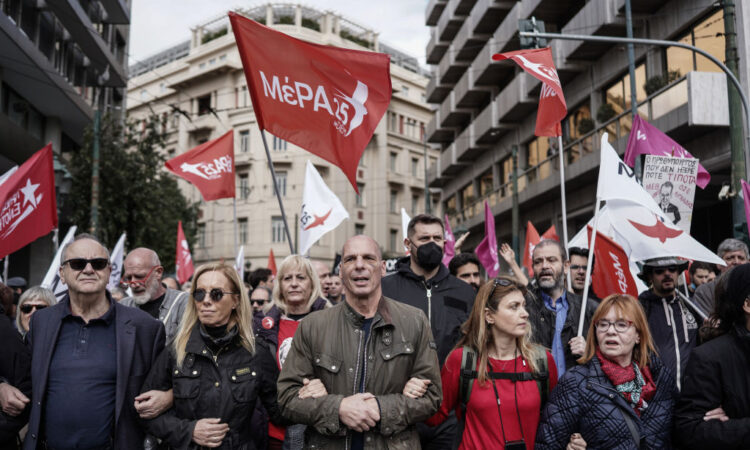
Yanis Varoufakis
MeRA25 is the only party with a fully-fledged, modular, multidimensional program for government, an economic, social, and environmental manifesto that offers an alternative to the so-called Memoranda of Understanding which are ruling the roost here in Greece.
One major element is a publicly owned bank to replace Hercules and stop the buying and selling of nonperforming loans on secondary markets. Rather, this bank — called Odysseus — would register these loans and allow those whose home or small shop or farm is at risk to avoid the foreclosure, dispossession, and auctioning of their property, for a small fee not exceeding one-sixth of their disposable income.
Banks would pass bad loans to Odysseus, which would then freeze them through bond issuance. The idea is that once the prices of the properties exceed the face values of the frozen loans, then there can be negotiations between the borrowers and Odysseus. They would not lose the share they have already paid. This would stop the transfer of wealth to the Cayman Islands and the social disaster resulting from dispossessions.
Another key element concerns energy. The electricity grid has been privatized and is in the hands of the oligarchs who purchased the remnants of the public electricity board. Our program sets out the gradual nationalization of energy producers and distributors, ensuring that the price of energy does not exceed the average cost of production.
After my departure from the finance ministry, a “superfund” was imposed to manage public assets. This is a unique case in world history: since it is directly troika-controlled, Greece’s assets are formally, legally controlled by foreign powers, the worst kind of neo-neocolonialism. We are proposing its disbandment and the passing of all public assets to a new public developmental bank. Its capital stock would create a stream of investment, including for the green transition and organic farming.
Another institution we propose is a free, digital payments system, based on the software of the Greek tax office. People could receive and make payments based on their tax-filing number, effectively a transaction system outside of the ECB, private bankers, Mastercard, or Visa. While it would save €2 billion every year, this is a controversial proposal because it is independent of the ECB, which would thus be unable to blackmail the Greek banking system as it did in 2015.
Moreover, we propose the disbandment of companies that trade in human labor, the rampant system of hiring via middlemen. We would reduce VAT from 24 to 15 percent and cut small businesses’s tax rate from 22 to 10 percent, while increasing the corporate tax rate from 22 to 30 percent. Funding for health and education is today abysmally low, and needs to be doubled. In all of this, we are not promising something that cannot be paid for, but an anti-austerity program.





